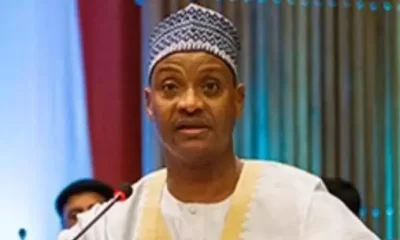Political Issues
NGO Regulation Bill; A Dangrous Piece of Legislation -By Jeff Okoroafor


Jeff Okoroafor
Since the return to civil rule in 1999, Nigerian political leaders across the federation have been making moves to stifle rights to freedom of speech as well as association or assembly as the case may be. Recall that in 2016 the Nigerian Senate came up with the Frivolous Petitions Bill, generally described as anti-social media bill, to regulate the practice of social media in the country. The sponsor of the Bill, Senator Bala Ibn Na’Allah once said in an interview then, that the Bill’s intendment was to PREVENT unwarranted spotlight on public and political office holders – simply put, to stop Nigerians from demanding for accountability and transparency from public and political office holders. Today, 2017, we are again faced with yet another dangerous piece of legislation that is all encompassing its scope. The NGO Regulation Bill is not only a danger to elective government in Nigeria, but also a danger to our democracy and on no account should it be allowed to pass.
I have taken my time, in addition to reading Prof. Chidi Odinkalu’s submission on the proposed bill, to go through the 58 damning sections of the bill, spoken to a number of legal luminaries, searched through the mandate and scope of other government (federal and state) agencies with monitoring and regulatory powers…and I can unequivocally say that we not only have enough laws that see to the transparency and accountability of NGOs in Nigeria, but also have extant laws that directly and indirectly checkmates their affairs and so what is nonexistent is enforcement of these already numerous laws. It does appear however, that there’s an already concluded conspiracy by the elites in Nigeria, to constrain the civic space and destroy dissents.
What the Bill proposes
The Bill in question proposes to create a Regulatory Commission for Non-governmental Organizations in Nigeria, headed by an Executive Secretary that will be appointed by the President for a 5-year period, and a 17-member Governing Board, led by a Chairman, all of whom shall also be appointed by the President. This “Governing Board” members will be in charge of issuing licenses to NGOs. The licenses however, will be the only legal authorization an NGO needs to operate and will be renewable every two years. Failure to obtain this license or get it renewed after every two years, will mean you cannot operate and if caught operating without it, you’d be imprisoned for 18 months or pay a fine of NGN500,000. Note that it now becomes irrelevant whether or not you are registered with the Corporate Affairs Commission, as an incorporated trustee.
It also submits that every funds that are collected, or are liable to be collected for the purpose of assisting communities and individuals in need, will be subject to approval by this Board. Before you can raise money, or use money raised for anything and everything, you must get a clearance.
It is also important to note that the Board can refuse renewal of such license for no reason and there is completely nothing you and I can do about it. Imagine for instance, a non-governmental organization seeking to end violence against women, or another working against child marriage, what do you think would happen to either of them, given the already well established pedigree of some of our Senators and Honourable members? The implication of this Bill for you as an individual and for the nation in general is holistic in its control
There’s an existing legal framework for the establishment of NGOs in Nigeria. There also exist a governance structure for NGOs, dissolution and corporate social responsibility reporting. This legal framework stems from the provision of our Constitution and it recognizes the right to peaceful assembly and association. The Companies and Allied Matters Act (CAMA) is the principal legislation that regulates corporate entities registered in Nigeria and our dear Corporate Affairs Commission represents the supervisory regulatory body for registered corporate entities. What this submits is that, right in Part C of the CAMA is everything our lawmakers need to regulate NGOs in Nigeria. It provides for accounting, annual filings, declarations, winding up and others
The important role NGOs play especially in crisis situation, cannot be over-emphasised. Recently the city of Makurdi was hit by a very dangerous flood that saw hundreds of houses covered up in water, with thousands of people displaced from their homes. Lives were lost and till date, there are those who are yet to account for the whereabouts of their relatives. We saw NGOs presence much more than any government agencies including the ones charged with disaster and emergency management. In the North East where we have over 4.5 million internally displaced persons, we have thousands of NGOs including iNGOs, providing support of all kinds. What are the officials of government agencies doing over there, they are responsible for stealing food items and relief materials brought in by foreign donors as well as cash. These are the people who will be in charge of licensing NGOs activities?
Demanding good governance – accountability, transparency, probity from all arms of the government is a patriotic duty of all citizens and we cannot in good faith, allow them take this democratic rights away from us with the introduction of a noxious Bill. It will be a dark day for democracy in Africa.



















